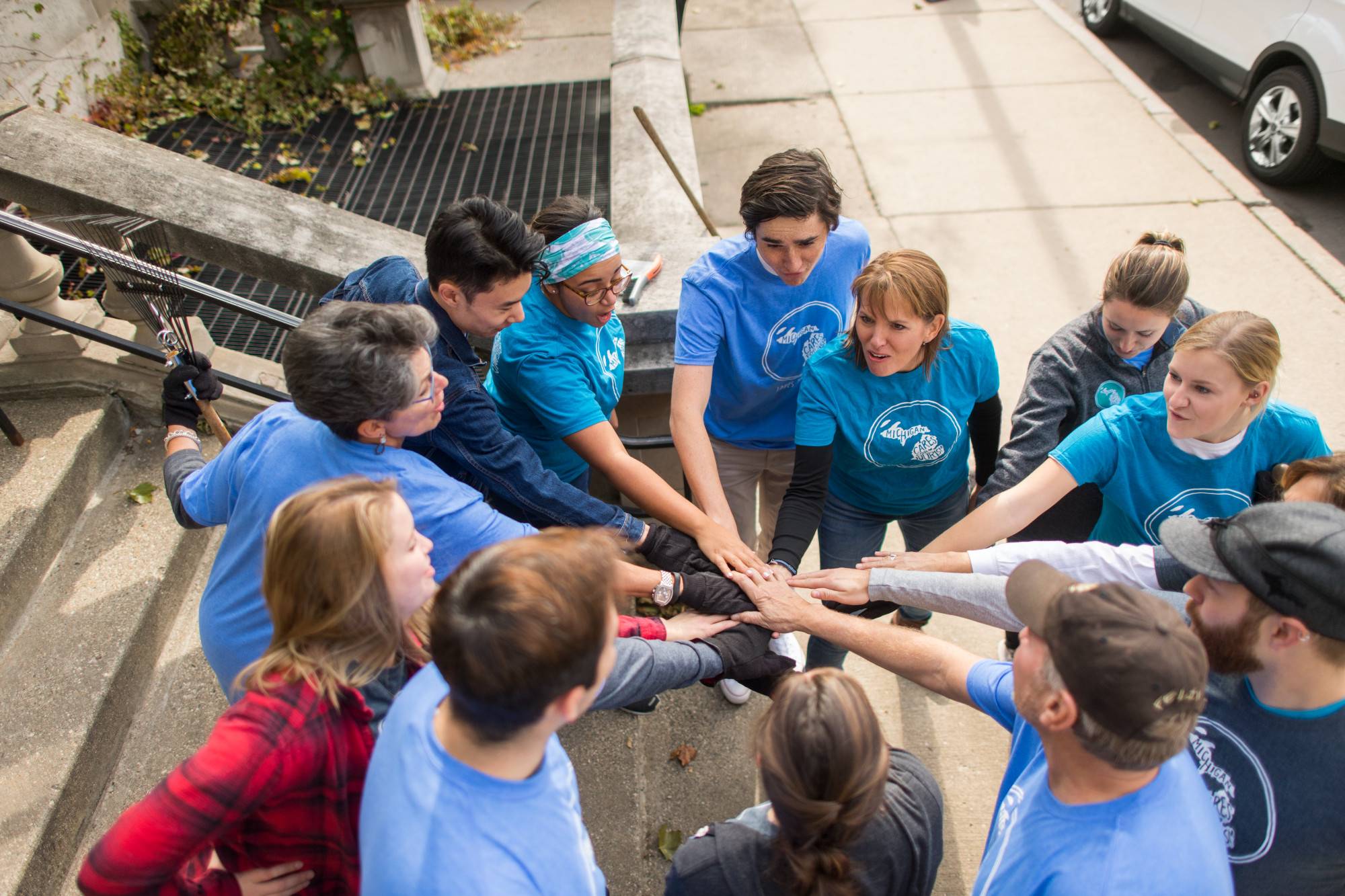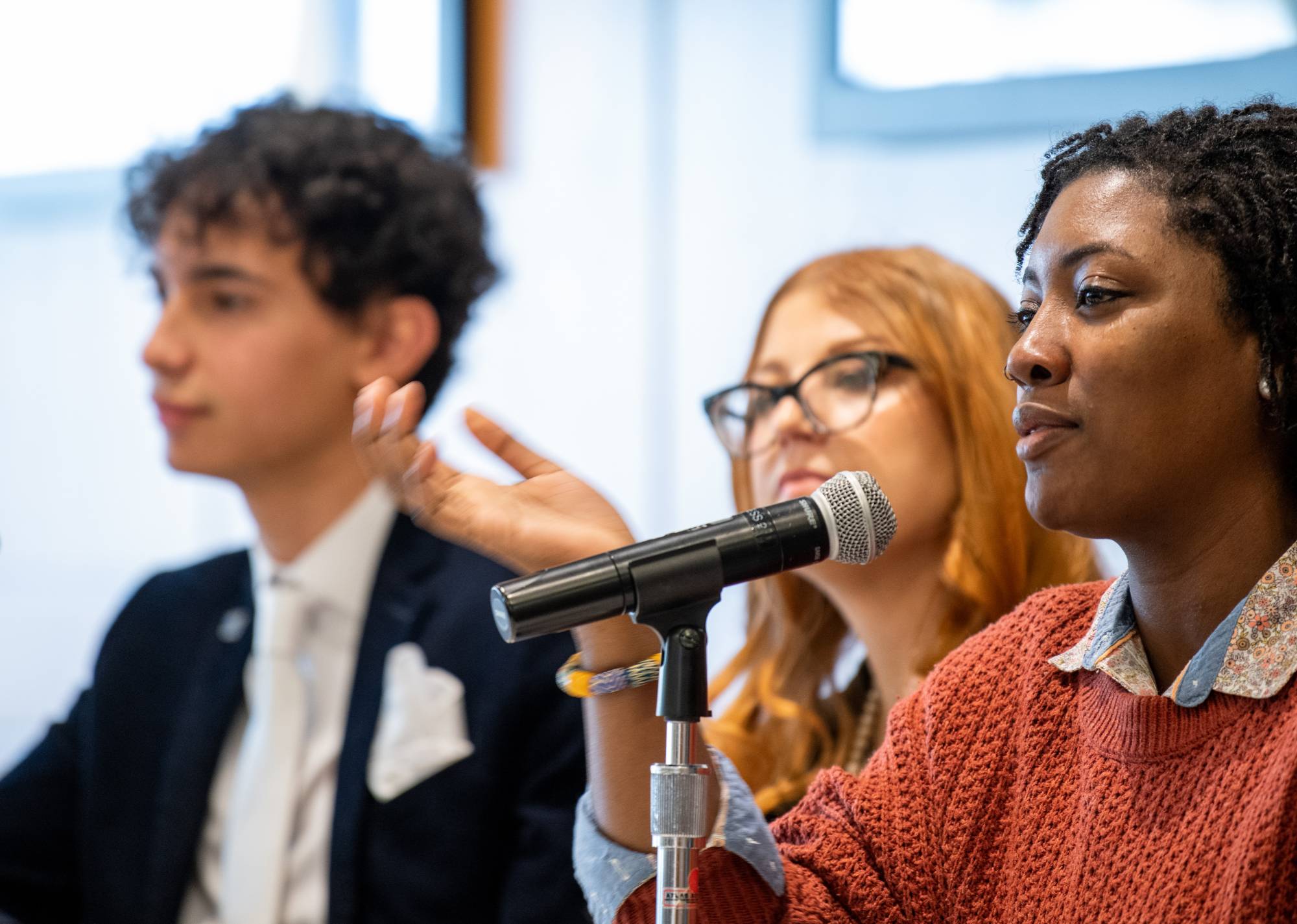Mission and Values

Through collaboration, consultation, and leadership with students, faculty, staff, administrators, and community partners, the Department of Inclusion and Equity at GVSU is committed to fostering a community that empowers learners in their pursuits, professions, and purpose, while advancing GVSU’s framework for equity, diversity, and inclusion. The department supports sustainable and strategic institutional efforts to engage all members of the community, while also intentionally advocating for and uplifting historically underrepresented communities. By promoting social justice and equitable practices across campus, the department's work strengthens GVSU's commitment to excellent teaching, active scholarship, and public service, thereby enriching society and promoting positive change.

[1738175902].jpg)

The Department of Inclusion and Equity at GVSU shares in the university's vision of preparing globally minded citizens for the future they face and the communities they shape. As a transformative force, the department leads the way in advancing GVSU's goal of becoming a national model for equity, inclusion, and social justice. Through pioneering, innovative, and dynamic leadership, the department works tirelessly to create a culture of belonging and foster an environment where all members of the community can thrive. By centering equity and inclusion in all of our academic and professional programs, we prepare students for a lifetime of continual learning and growth and contribute to a more just and equitable society.

The Framework for Inclusion and Equity at GVSU articulates the university’s understanding of diversity, equity, and inclusion. It sets the stage for the next phase of our commitment to advance diversity, inclusion, equity, and social justice. Grand Valley believes that equity and inclusion makes each member of our community better and is fundamental to what it means to be a Laker.

A social justice and intersectional framework guides the strategic efforts of the division. This framework acknowledges systems of oppression and marginalization and aspects of power and privilege and seeks to educate and empower all members of the community to work toward equity. This framework also acknowledges the university’s place within systemic and institutionalized challenges for equity and inclusion, but affirms our commitment and responsibility to strive for transformation. The department is guided by this framework to seek a deeper understanding of complex intersecting social identities which highlights the centrality of understanding the full dimensions of identities and how these they dynamically interact with one another. As such, our work and education is grounded in teaching about and addressing interdependent systems of oppression and marginalization.
The department’s value for equity supports the university’s “institutional commitment to acting with integrity, communicating openly and honestly, operating transparently and accepting responsibility for our words and actions” (University Compliance Office) and commitment to identify and eliminate barriers to recruitment and retention of diverse students, faculty, and staff. The department seeks to set high standards of professional ethics and consistency in principles, expectations, and actions. The division supports the university’s compliance with extensive and ever-changing applicable federal and state laws and regulations regarding antidiscrimination as well as university policy. The department also ensures GVSU’s commitment to equal opportunity for all persons and works to eliminate and prevent discrimination on the basis of age, ancestry, citizenship, color, familial or marital status, race, religion, sex, sexual orientation, gender, gender identity, gender expression, genetic information (including family medical history), height, national origin, political affiliation, pregnancy, physical or mental disability, participation in the uniformed services, veteran status, or weight in admissions, access, and treatment in educational, athletic, social, cultural, or other university programs and activities and employment. Equitable practices and policies are designed to accommodate differences in the contexts of learning and working, particularly in light of historical factors of disadvantage and marginalization. While taking seriously the university’s legal obligations, we also understand that if we look at this approach as merely a compliance issue we will never achieve our greater goals within our community. By creating a community that fosters diversity, rather than requires it, we hope to create a place where obligations are met organically rather than through federal mandate. As such, the department accepts a beyond-compliance model that recognizes compliance as a minimum standard for equity and inclusion and strives to set a new bar for excellence and advocacy in these areas.
The department furthers the university’s commitment to student success by supporting diverse and underrepresented student engagement and development as well as the recruitment, development, and retention of reflective, student-centered faculty and staff who are prepared to meet the needs of our diverse students. It shapes educational practice and policies that encourage high levels of learning and personal development for marginalized and underrepresented students, student persistence, and student satisfaction. The department partners with faculty, staff, and the community to educate all students about power and privilege and works collaboratively to empower students from diverse communities, and engages students in critical dialogue and programming related to campus climate and social justice.
Understanding that equity and inclusion must be embedded across the university to effect institutional change, the division accomplishes its mission in part by establishing partnerships within the university and across our external communities. As such, effective equity and inclusion strategies are derived only through efforts that support shared understanding and shared accountability. In these efforts, the division prioritizes collaboration with academic and administrative units across campus, and furthers the university’s commitment to shared governance through ongoing education, engagement, and consultation with students, faculty, staff, and administrators. Effective, authentic and genuine collaboration is modeled within the division.
GVSU’s success in advancing equity and inclusion is due, in part, to the long-standing diversity champions within West Michigan’s diverse communities. GVSU strives to be as much a part of the community as it hopes the community is a part of it. It’s with this deep understanding that the department is committed to creating reciprocal and mutually beneficial external partnerships particularly with historically underserved communities.
The department seeks to advance the university’s culture of assessment and data-driven decision-making and is committed to implementing and innovating evidence-based practices that are supported by measurable outcomes that drive institutional actions and further the university’s strategic planning priorities. Diversity, equity, inclusion and social justice are not just rhetoric within the department, nor at GVSU. Enacting equity requires a continual process of learning, disaggregating data, and questioning assumptions about relevance and effectiveness. We are committed to measuring and demonstrating institutional change through assessment and reporting and maintaining a high level of transparency and accountability.
